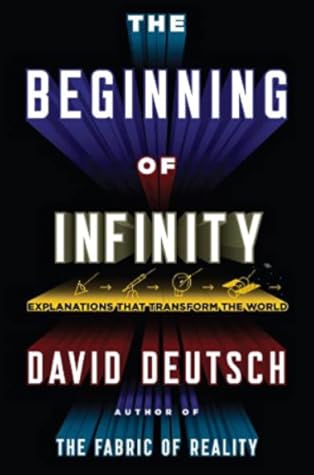More on this book
Community
Kindle Notes & Highlights
Read between
October 23 - October 23, 2021
All observations are, as Popper put it, theory-laden,* and hence fallible, as all our theories are. Consider the nerve signals reaching our brains from our sense organs. Far from providing direct or untainted access to reality, even they themselves are never experienced for what they really are – namely crackles of electrical activity.
Because an error in experimental science is a mistake about the cause of something. Like an accurate observation, it is a matter of theory. Very little in nature is detectable by unaided human senses. Most of what happens is too fast or too slow, too big or too small, or too remote, or hidden behind opaque barriers, or operates on principles too different from anything that influenced our evolution. But in some cases we can arrange for such phenomena to become perceptible, via scientific instruments.
Problems are inevitable, because our knowledge will always be infinitely far from complete.
An optimistic civilization is open and not afraid to innovate, and is based on traditions of criticism. Its institutions keep improving, and the most important knowledge that they embody is knowledge of how to detect and eliminate errors.
Courses in philosophy place great weight on reading original texts, and commentaries on them, in order to understand the theories that were in the minds of various great philosophers.
For example, in all the physics courses that I took at university, both as an undergraduate and as a graduate student, I cannot recall a single instance where any original papers or books by the great physicists of old were studied or were even on the reading list. Only when a course touched upon very recent discoveries did we ever read the work of their discoverers. So we learned Einstein’s theory of relativity without ever hearing from Einstein; we knew Maxwell, Boltzmann, Schrödinger, Heisenberg and so on only as names. We read their theories in textbooks whose authors were physicists (not
...more


